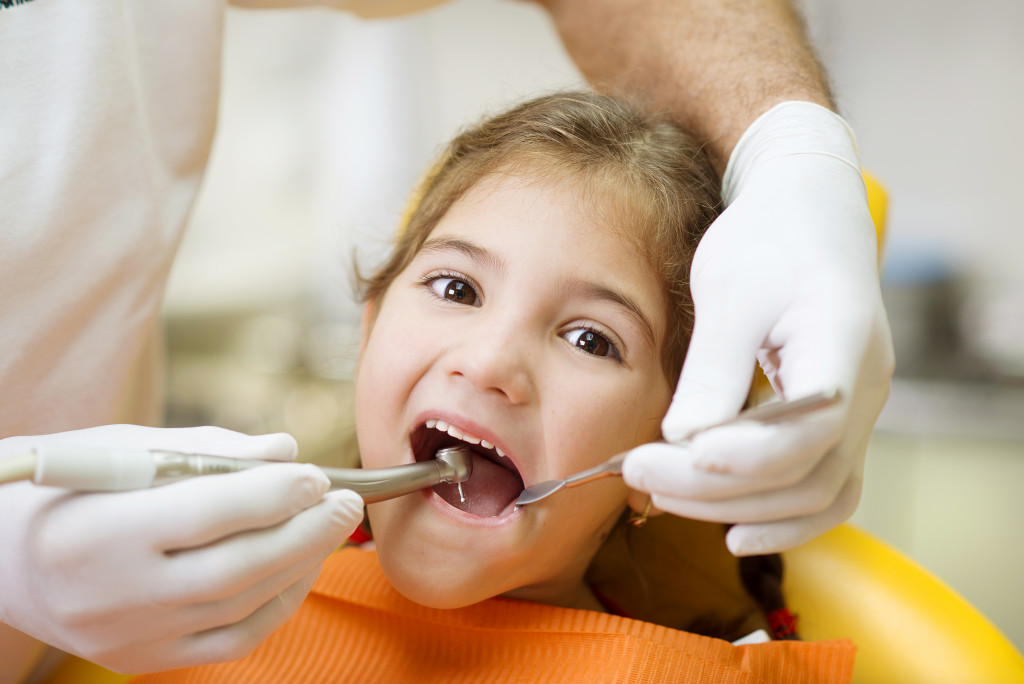- Bleeding gums in children often indicate poor oral hygiene, medication side effects, nutritional deficiencies, or gum disease.
- Regular brushing, flossing, and fluoride toothpaste can prevent plaque and tartar buildup.
- A balanced diet and sufficient hydration are crucial in maintaining your child’s oral health.
- Regular dental check-ups can detect early signs of gum disease and provide professional cleaning.
- Early instillation of good oral health habits and seeking professional advice for worrying symptoms is key.
As parents, you want your children to be healthy and happy. However, sometimes you notice certain symptoms that indicate that there might be something wrong. One such symptom is bleeding gums in children. This can be a cause for concern, but it is essential to understand that various reasons exist. Here’s what you need to know about bleeding gums, its reasons, and how to deal with it as parents.
Bleeding Gums Among Children
Bleeding gums in children is a common dental issue, often indicating gingivitis or poor oral hygiene. It typically happens due to plaque accumulation on the gums and teeth, which can cause inflammation and bleeding. Here’s a deeper look into the common reasons behind leading gums among children:
1. Poor Oral Hygiene
The most common reason for bleeding gums in children is poor oral hygiene. Children who do not brush their teeth regularly or adequately are prone to developing plaque and tartar buildup, which can lead to gum disease. This can cause gums to bleed during brushing or flossing. You must teach your children proper brushing and flossing techniques and ensure they do it regularly.

2. Medications
Certain medications, such as blood thinners, can cause gums to bleed easily. If your child takes any medication, it is essential to consult with your doctor or dentist to ensure their oral health is not affected. They may recommend changes in dosage or provide alternate medications.
3. Nutritional Deficiencies
Deficiencies in essential vitamins and minerals, such as vitamins C and K, can lead to bleeding gums in children. These nutrients are essential for maintaining healthy gums and overall oral health. Adding more fruits, vegetables, and leafy greens to your child’s diet can help prevent nutritional deficiencies.
4. Trauma or Injury
Children who play sports or engage in activities that pose a risk of injury to the mouth can experience bleeding gums due to trauma. It is essential to ensure that your child uses appropriate mouthguards or protective gear during such activities.
5. Gum Disease
In rare cases, bleeding gums in children can be a sign of gum disease caused by the buildup of plaque and tartar. Gum disease can lead to serious oral health issues if left untreated. If you suspect that your child has gum disease, it is essential to consult with a dentist as soon as possible.
Prevention
As parents, you can prevent bleeding gums among your children in various ways. Here are four effective ways:

Professional Dental Help
Regular visits to a pediatric dentist can significantly reduce the chances of your child developing bleeding gums. Visiting your local dental clinic can provide professional cleaning to remove plaque and tartar buildup that regular brushing and flossing might miss. Furthermore, they can evaluate your child’s oral hygiene habits, provide guidance for improvement, and detect early signs of gum disease.
A dentist can provide the necessary advice or treatment for any nutritional deficiencies or medication-induced gum bleeding. Therefore, establishing a routine of regular dental check-ups can be an effective preventative measure against bleeding gums in children.
Healthy Diet
A balanced diet plays a vital role in maintaining good oral health. Foods rich in Vitamin C, such as oranges, strawberries, bell peppers, and Vitamin K, like spinach, broccoli, and Brussels sprouts, can strengthen your child’s gums. Limiting sugary and starchy foods can help prevent the buildup of plaque and tartar, leading to healthier gums.
Use of Fluoride Toothpaste
Fluoride toothpaste can help protect your children’s teeth from decay and reduce plaque and tartar formation. It strengthens the tooth enamel, making it more resistant to the acid produced by bacteria in the mouth. Teach your child to use a pea-sized amount of fluoride toothpaste for brushing twice daily.
Hydration
Drinking plenty of water can help your child maintain good oral health. Water can wash away food debris and dilute the acids produced by the bacteria in your child’s mouth, reducing the risk of oral diseases. It also aids in producing saliva, which naturally cleanses the mouth. Encourage your child to drink water after meals and throughout the day.
Bleeding gums in children, while concerning, can often be remedied through a combination of good oral hygiene, regular dental visits, a balanced diet, and consistent hydration. It’s crucial to instill good oral health habits in your child early on, and remember, never hesitate to seek professional advice if you notice any worrying symptoms. With the right approach and precautions, your child’s smile can remain healthy and bright for years.



















